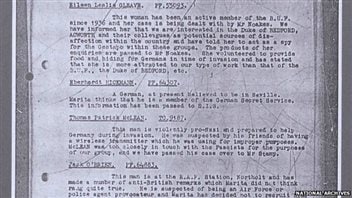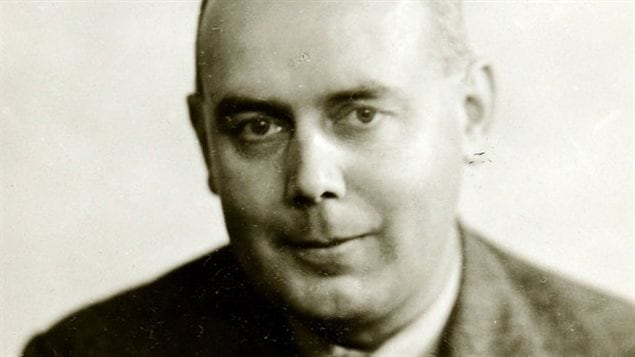
Quiet, unassuming, inauspicious, that was Eric Roberts. In fact unlike a James Bond character, those are the perfect qualities for a spy.
A bank clerk in London, he became a very important agent for MI-5, the British secret spy agency before, during, and even for a time after the Second World War.
His job was to keep tabs on “fifth columnists” or Nazi sympathisers and spies in Britain.
In fact he was so unobtrusive that in 1940 when his bank employers were asked by MI-5 acting director in LtCol Harker to allow him freedom to perform work of “national importance”, a senior bank manager agreed but added rather coldly, “what we want to know here is – what are the particular and especial qualifications of Mr. Roberts – which we have not been able to perceive”
The information about the secret life of Roberts , aka “Jack King” was released by British Archives earlier this month.

At one point “Jack King” was thought to be John Bingham, another spy who in turn is thought to be the inspiration for the fictional spy George Smiley of John LeCarre’s famous novels.
Roberts pretended to be a Gestapo agent in Britain and quickly infiltrated and controlled groups of Nazi sympathizers, even though most reports said he only knew a few words of German, along with some French and Portuguese, but was said to speak Spanish well.
However, his surviving son Max, a businessman in Burlington, Ontario, says it was the other way around. He is quoted in the Hamilton Spectator newspaper saying MI-5 records are incorrect; “He had a real handle on languages. He and my mother spent their honeymoon hiking along the Rhine (river) in 1934. He could get along very well in German.”
In some cases Roberts was able to divert subversive plans of the Nazi sympathizers into basically harmless activities, while in others he was passed valuable information from his contacts which would otherwise have ended up in Nazi hands causing great harm to the war effort.
He was highly praised for his work by superiors at MI5,
His work as a British undercover agent continued after the war, and he retired only upon emigrating to Canada with his his wife and three children, although the reasons for coming to Canada are not entirely clear.
After a few months in Hamilton, the family moved to Salt Spring Island where he was known as a regular contributor to the local newspaper on historical topics.
He also wrote a book on Salt Spring Island history, Salt Spring Saga
Daughter Christa, now 72 and living in British Columbia said the family knew he had some involvement with MI5 but had no idea of the extent or importance of his work. She adds that she and her surviving brother are very proud to know of the importance of the previously unheralded work of her father.
Roberts died in 1972 at age 65.
with files from CBC







For reasons beyond our control, and for an undetermined period of time, our comment section is now closed. However, our social networks remain open to your contributions.